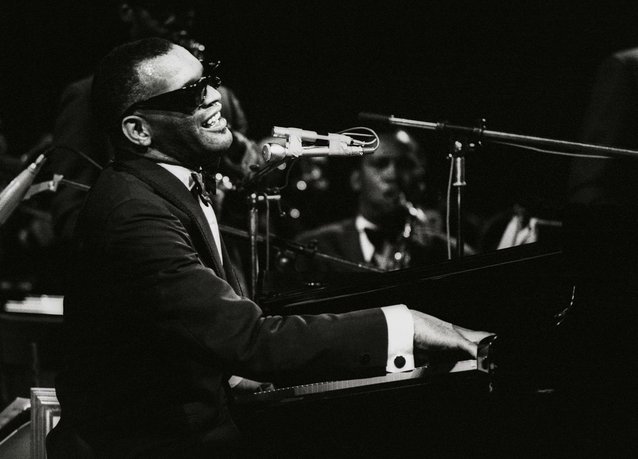What is a soul and where does it come from? The question has plagued philosophers for decades, its answer eternally out of reach… We may never be able to solve that particular conundrum, but we can tell you one thing: soul music comes from Ray Charles, the blind pianist whose pioneering mix of gospel, blues, jazz and R&B music gave the word an entirely new sound. Born on 23 September 1930, in Albany, Georgia, Ray Charles didn’t just become “the only true genius in show business”, as Frank Sinatra put it: he was The Genius, a nickname that his contemporaries – and future generations of musicians – had no qualms over bestowing upon him, that word returning again and again in his album titles: The Genius Of Ray Charles (1959), The Genius Sings The Blues (1960), The Genius Hits The Road and The Genius After Hours (both 1961), Genius Loves Company (2004).
The Genius sings soul music… and more
Soul music as we know it wouldn’t exist without Ray Charles, but he reverse-engineered the equation in 1961 with the album Genius + Soul = Jazz, an album that tapped into one of his earliest influences: jazz music. Starting out the mid-1940s, Ray Charles aspired to be the next Nat King Cole, the jazz singer and pianist then blazing his own pioneering trail as an African-American musician in a segregated United States. But Ray Charles’ own playing was far too wide-ranging to limit himself to just one style of music. Throughout his teenage years, an itinerant lifestyle saw him travelling the US, picking up an array of licks and stylings from bands he sat in with, while seeking to become a bandleader himself.
Eventually forming his own group, Charles scored an early hit with Confession Blues, which hit No.2 on Billboard’s R&B chart in 1949. Just a few years later he caught the ear of legendary producer Jerry Wexler, who brought the pianist to Ahmet Ertegun, head honcho of Atlantic Records. It was here that Ray Charles honed his sound – and blew the doors open for the future of music.




